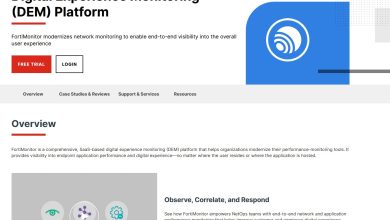
Growth and expansion is the primary objective of startup companies and small businesses. When your company moves past the initial stages of establishment, the next logical step is to scale up. Expanding your company is exciting, but a growing business doesn’t come without growing pains. You’ll face obstacles that challenge your skills as an entrepreneur.
Running a business is a huge responsibility. Every decision that you make should lead to the success of your company because errors in judgment can cost you a fortune.
They say that a wise man learns from his mistakes, but a wiser man learns from the mistakes of others. Be a wiser man and learn from the most common mistakes business owners make. With that said, here are four of the biggest blunders entrepreneurs make when scaling their business.
1. Substandard Hiring Practices
You may think that it’s easy to replace your employees, but studies show that the cost of turnover is exponentially high. According to the Center for American Progress, if your employee makes $50,000 or less, it’ll cost you 20% of the $50,000 to replace them. That’s about $10,000 per person!
It’s important to be meticulous in your hiring process early on. To see if they’re a good fit for your company, make sure to ask the right questions specific to your company and the position they’re applying for. You need to assess if they enough experience with startups and if they understand your vision for the company.
If you aren’t confident in your ability to hire employees, you can work with a reputable recruiting firm. They will assess your business to match you with the right man for the job. Once you get the hang of hiring employees, make sure to create a hiring plan for future reference smbcompass.com.
It may be tempting to hire the first applicant that goes through your doors when you’re short on people. However, taking your time to sift through the candidates is crucial if you want to employ the right people for the position.
2. Rapid Growth
You’ve probably thought that rapid growth is the best way to scale your business. However, scaling your business as quickly as possible does more harm than good.
Take a look at Zynga, a video game developer company. A few years after putting up their company, Zynga saw a drastic increase in sales that they hired approximately 3,000 employees. The company didn’t have a proper budget and they underestimated the costs of hiring. And as a result, they ended up laying off one-fifth of its employees.
It’s easy to get caught up with the fuzz of business growth and expansion. Forming new partnerships, implementing exciting marketing campaigns, and launching new products are all exciting, but remember not to rush into it. Make sure to assess every aspect of the process before moving forward.
The key to effective expansion is to ensure that your capital matches your growth. Predict business growth before it happens and plan for it. If you act out without thorough planning, it will cost your time, money, and effort.
3. Failing to Distinguish Different Types of Users
When launching new products, there are three different types of users: the first users, the early adopters, and the real users.
The first users, bloggers, vloggers, and influencers, are the ones who can try your products for free. They talk about your products on their platforms and suggest areas of improvement. Their involvement plays a huge role in scaling your business because their reviews can encourage their audience (the real users) to take action.
Check out Quake, a game launched in 1996. The developers let players try Quake for free in exchange for suggestions and debugs. The company published the game to the public after implementing the modifications suggested by the first users. Quake listened to the suggestions and complaints of the first users and once they launched the new, user-redesigned version, they saw a drastic increase in sales.
The early adopters are people who want to be ahead of everyone else in trying out new products. If you’re looking to scale your business, you need to identify the first users and early adopters before launching your product to the public (real users).
4. Failing to Allocate Enough Working Capital
Growth and expansion come at a price. As you grow your business, your needs will constantly change. Whether you need a bigger line of credit or a small business loan, you need to be financially ready for how your business will run at a larger scale.
Taking out small business loans prepares your business for growth and expansion. There are different types of small business loans depending on your needs. You can take out a business line of credit, SBA loans, or invoice financing. Make sure to consult with an expert so they can help you assess which type of loan is best for you.




